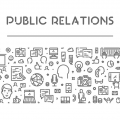Are you thinking about expanding your customer base and opening your business in foreign markets? Getting results in a new market can be quite tough! Communicating with the local audience in a language that they know and understand well can be quite a daunting task. Especially because the communication is not limited to the language only. It also involves coming to terms with the market’s culture, beliefs and sentiments. You will be required to pick your words carefully to ensure that your potential customers are receiving the right message regarding your products and services.
Marketing in a different country should be similar to marketing in your home country. You should strive for the same level of persuasion as you do with customers in your country. Globalization has made interacting with stakeholders from different nations significantly easier, but it doesn’t mean that all of the countries have adopted English as their second language. There are many countries that stick solely to their native language and wish to use that as their primary means of communication. Hence, you will need to make sure that you are correctly filling out the marketing translation requirements, so that not only are you able to persuade your customers to buy what you have to offer, but to also ensure that you do not end up offending them. Mercedes Benz learnt this lesson the hard way when they decided to launch their brand in China under the “Bensi” name, meaning “rush to die” in Chinese!
It is a good decision to outsource your translation needs to a professional translation company that will come with an experienced team and streamlined processes. Here are some things you will need to keep in mind when getting the translation done.
Marketing language is different from a direct translation
The most important thing to consider here is the need for a translator to also be a copywriter. A marketing translator needs to have a good understanding of the consumer buying behaviour and be able to craft a message that will resonate with their multilingual consumers.
Marketing messages are drafted, taking a lot of things into consideration. They take into account the brand’s personality, the target audience, and also ensure that the essence of the brand should be relayed without anyone getting offended.
Unlike a technical document that only employees of a particular organization can read, a marketing message on a social media site or a newspaper ad is seen by a much wider audience. So, a brand needs to be really careful about the message getting translated in the right context. Any mistake here can cost the company a lot in terms of brand reputation and customer loyalty.
It should adapt to the local culture
It is best if the marketing translator has complete knowledge of the locality that is being targeted so that they can draft a message that resonates well with the target audience.. Cultural differences are a big issue, and so a lot of the words and idiomatic expressions have to be considered.
There could be some expressions or images that are not acceptable to the local audience in a new target market. A brand that is not sensitive to these cultural nuances will find it really difficult to establish a foothold in such markets. Pepsi’s first foray in the Far East was a blunder because the slogan ‘Come alive with the Pepsi generation’ was supposedly mistranslated as ‘Pepsi brings your ancestors back from the dead’!
A brand that adapts its products and communication for different cultures can find success across geographical borders. The key here is to remain sensitive to the cultural and linguistic divides.































No Comments
Leave a comment Cancel